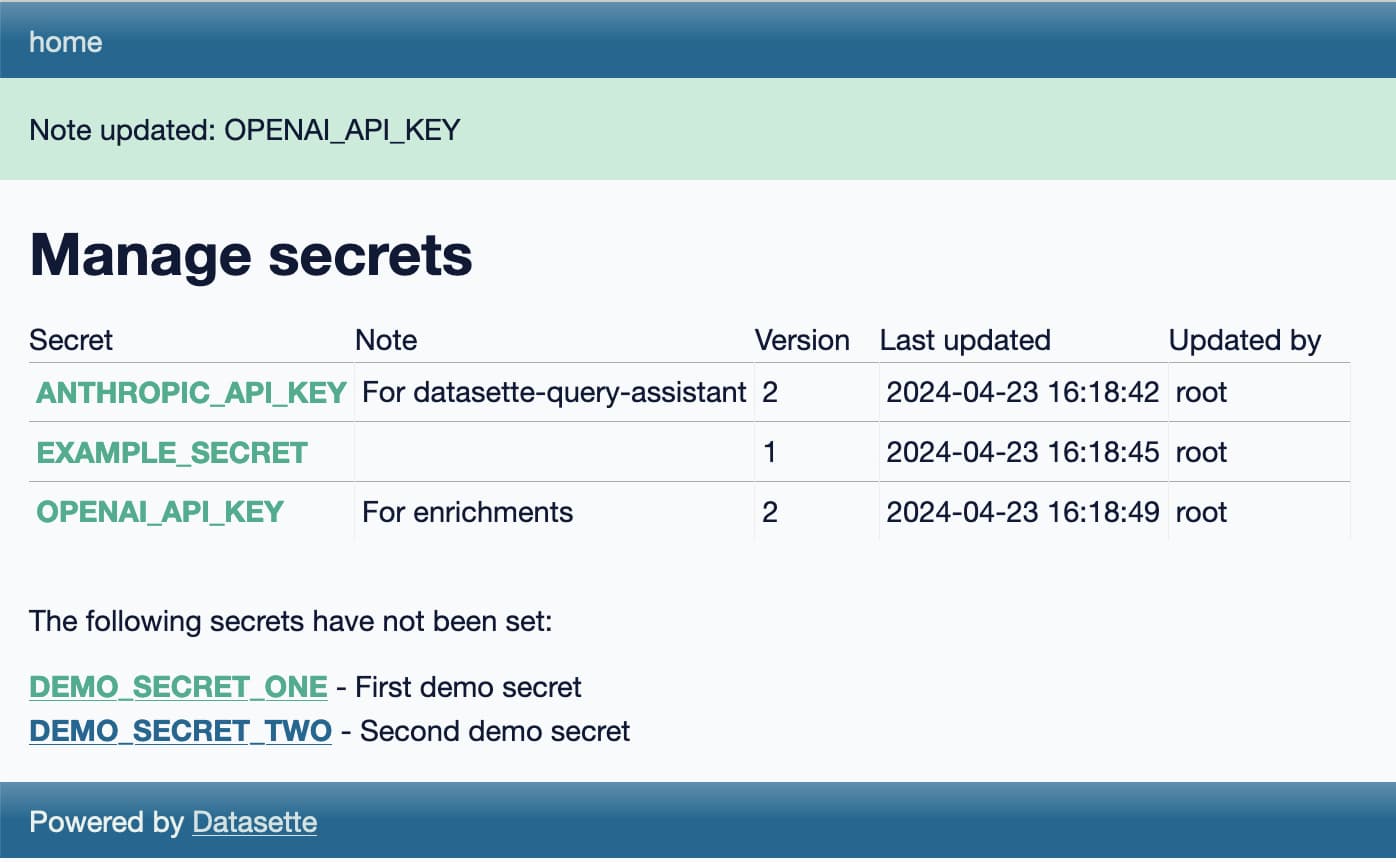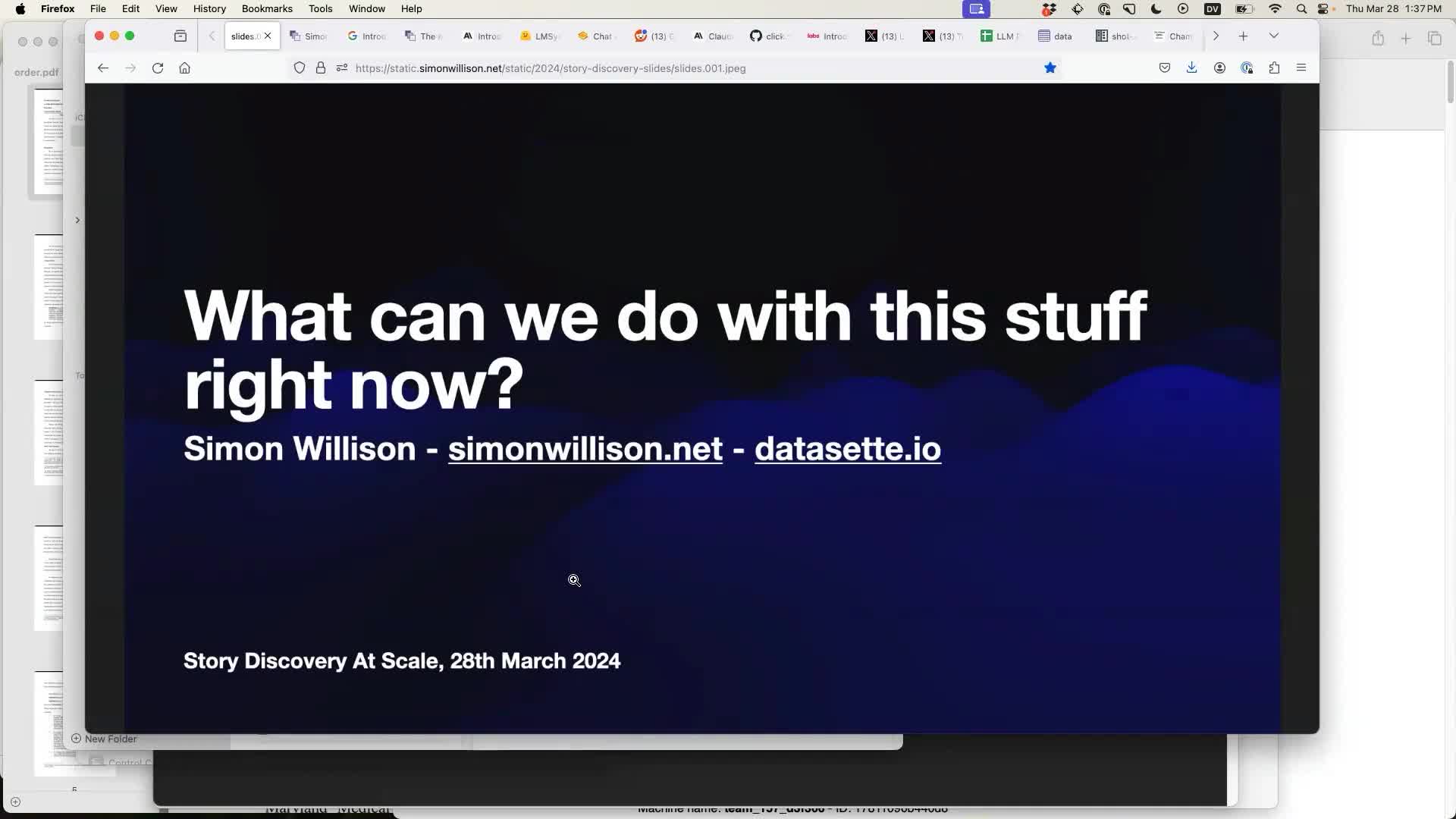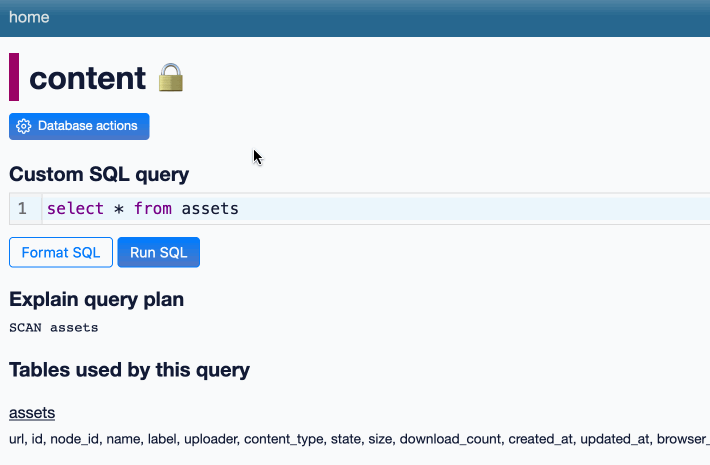1,455 posts tagged “datasette”
Datasette is an open source tool for exploring and publishing data.
2024
Weeknotes: Llama 3, AI for Data Journalism, llm-evals and datasette-secrets
Llama 3 landed on Thursday. I ended up updating a whole bunch of different plugins to work with it, described in Options for accessing Llama 3 from the terminal using LLM.
[... 1,030 words]AI for Data Journalism: demonstrating what we can do with this stuff right now
I gave a talk last month at the Story Discovery at Scale data journalism conference hosted at Stanford by Big Local News. My brief was to go deep into the things we can use Large Language Models for right now, illustrated by a flurry of demos to help provide starting points for further conversations at the conference.
[... 6,081 words]Extracting data from unstructured text and images with Datasette and GPT-4 Turbo. Datasette Extract is a new Datasette plugin that uses GPT-4 Turbo (released to general availability today) and GPT-4 Vision to extract structured data from unstructured text and images.
I put together a video demo of the plugin in action today, and posted it to the Datasette Cloud blog along with screenshots and a tutorial describing how to use it.
datasette-import. A new plugin for importing data into Datasette. This is a replacement for datasette-paste, duplicating and extending its functionality. datasette-paste had grown beyond just dealing with pasted CSV/TSV/JSON data—it handles file uploads as well now—which inspired the new name.
Add ETag header for static responses. I’ve been procrastinating on adding better caching headers for static assets (JavaScript and CSS) served by Datasette for several years, because I’ve been wanting to implement the perfect solution that sets far-future cache headers on every asset and ensures the URLs change when they are updated.
Agustin Bacigalup just submitted the best kind of pull request: he observed that adding ETag support for static assets would side-step the complexity while adding much of the benefit, and implemented it along with tests.
It’s a substantial performance improvement for any Datasette instance with a number of JavaScript plugins... like the ones we are building on Datasette Cloud. I’m just annoyed we didn’t ship something like this sooner!
Weeknotes: the aftermath of NICAR
NICAR was fantastic this year. Alex and I ran a successful workshop on Datasette and Datasette Cloud, and I gave a lightning talk demonstrating two new GPT-4 powered Datasette plugins—datasette-enrichments-gpt and datasette-extract. I need to write more about the latter one: it enables populating tables from unstructured content (using a variant of this technique) and it’s really effective. I got it working just in time for the conference.
[... 1,430 words]

